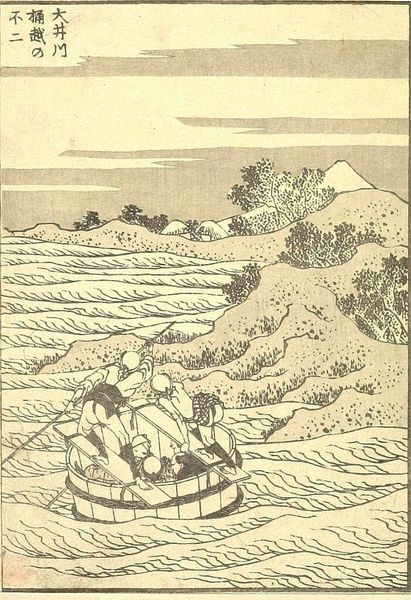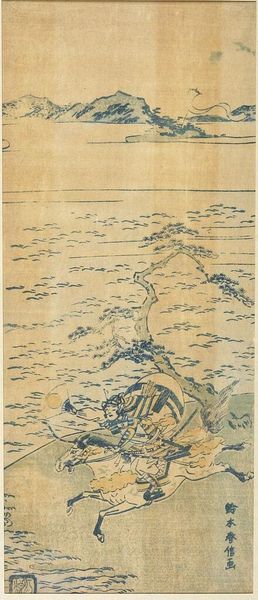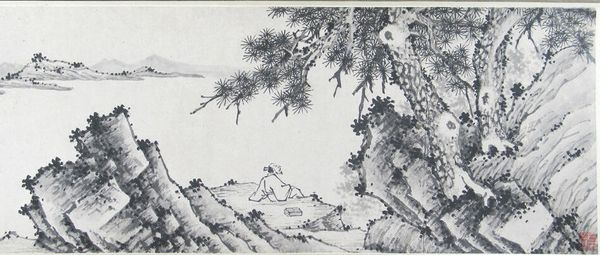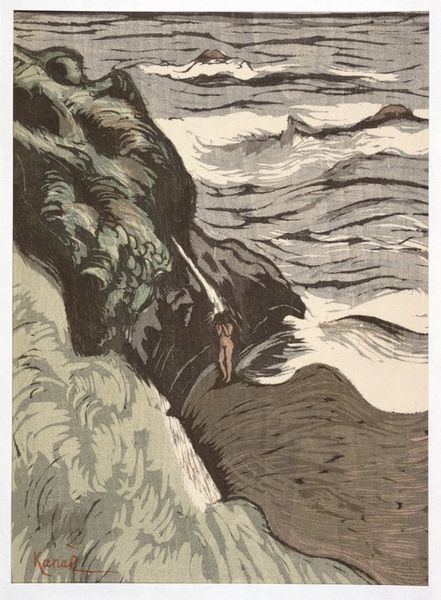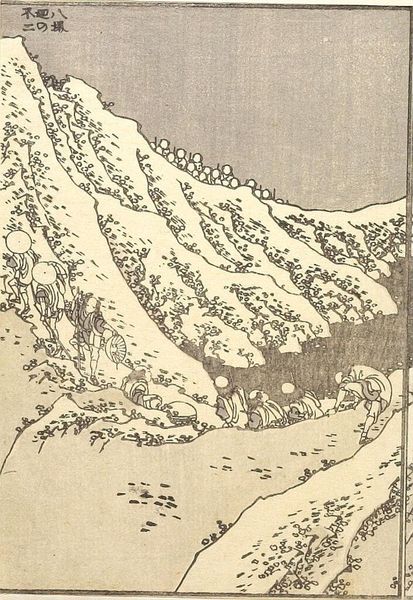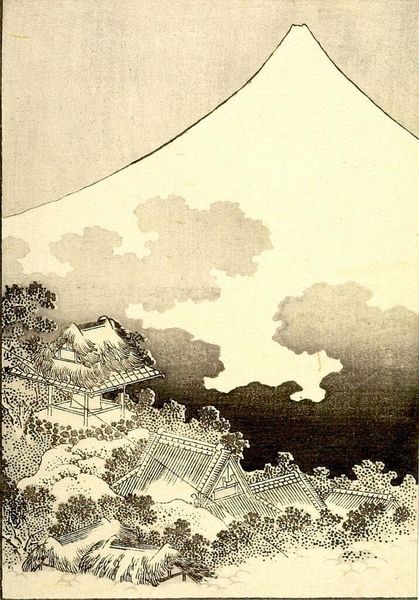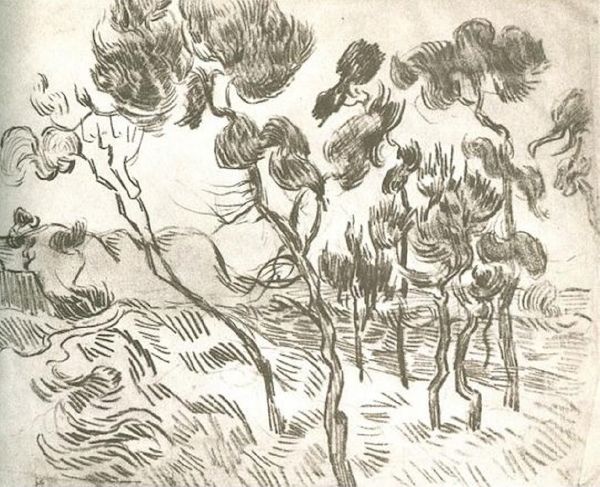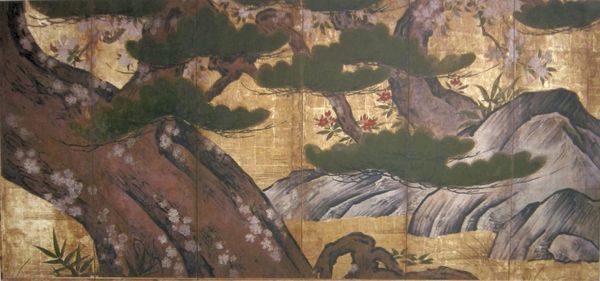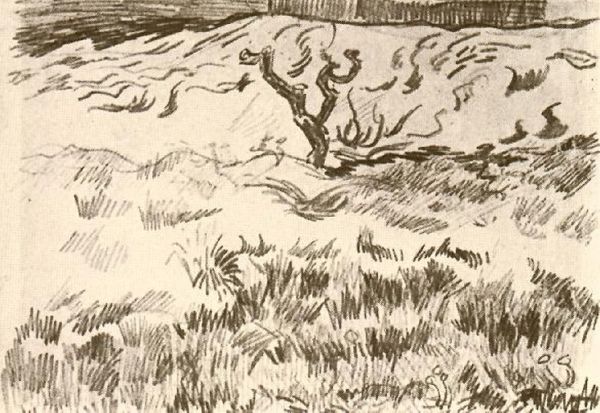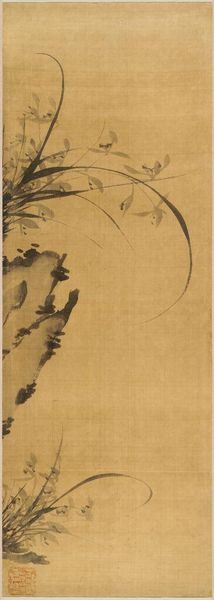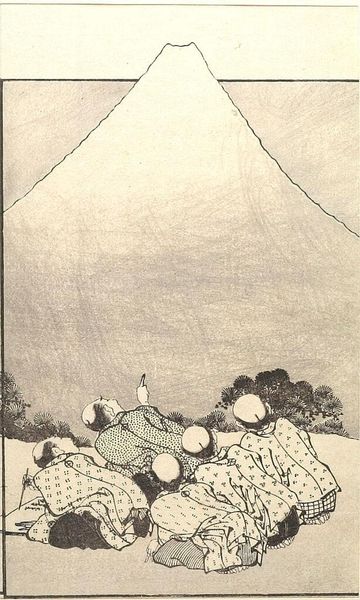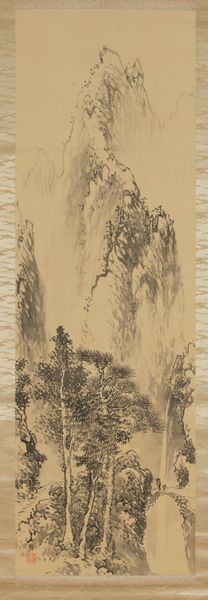
Poet Ariwara no Narihira on Horseback Admiring Mount Fuji with Two Attendants, from the Tales of Ise (Ise monogatari) c. late 18th century
0:00
0:00
Dimensions: Paper: H. 69.9 cm x W. 12.7 cm (27 1/2 x 5 in.)
Copyright: CC0 1.0
Curator: Looking at this long, almost scroll-like image, I feel a sudden sense of nostalgia—it’s aged like a good haiku, hasn't it? Editor: It certainly has a sepia-toned charm. This is Kitao Shigemasa’s print, depicting the Poet Ariwara no Narihira on Horseback Admiring Mount Fuji with Two Attendants, from the Tales of Ise. Curator: Narihira, always the romantic! Fuji looms large, a silent witness to his poetic musings, dwarfing him and his companions, which, to me, speaks to the power of nature over the individual. Editor: Absolutely. Mount Fuji itself is a powerful symbol in Japanese culture, representing eternity, strength, and the sublime. Its presence here elevates Narihira's journey, imbuing it with deeper meaning. Curator: Do you think Shigemasa was intentionally playing with the visual trope of the wandering poet, suggesting that art and nature are intertwined, almost symbiotic? Editor: Quite possibly. The Ise Monogatari celebrates the beauty of the natural world, often using it as a mirror for human emotion. Shigemasa captures this essence through the symbolic weight he gives to Mount Fuji. Curator: I'm struck by how the artist managed to make it feel so... intimate, even with that grand mountain in the background. It feels like a stolen moment, doesn't it? Editor: It does. The composition directs our gaze upward, mirroring Narihira's own reverent contemplation. The print reminds me that even epic landscapes can be experienced as deeply personal, and intensely human moments. Curator: Agreed, it speaks to how we are all, in a way, miniature versions of the sublime itself. Editor: Beautifully put.
Comments
No comments
Be the first to comment and join the conversation on the ultimate creative platform.


